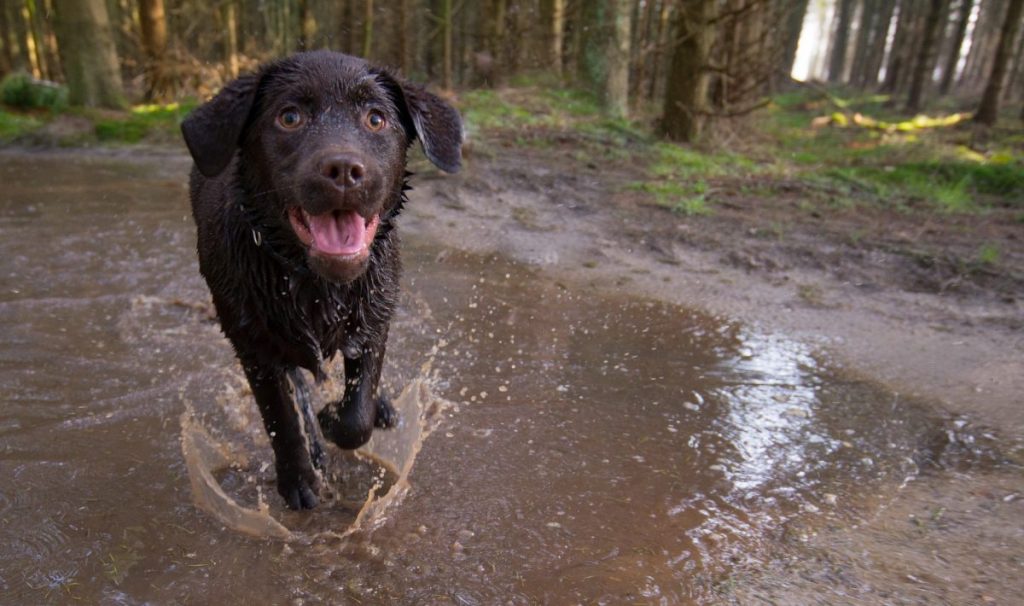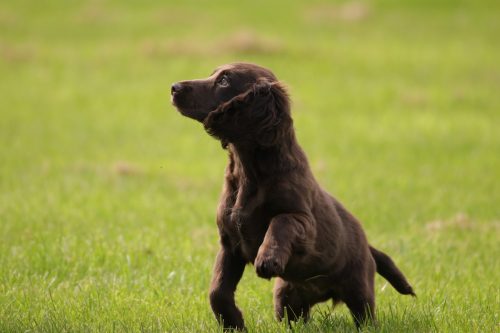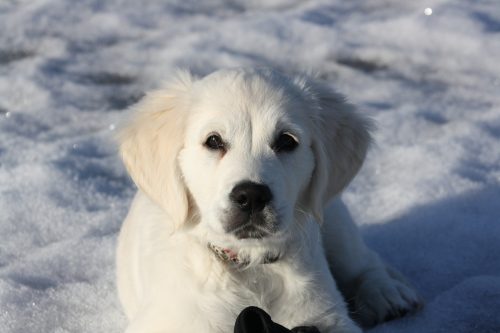Excitement urination is one of the most common problems faced by new puppy owners. Don’t stress, most puppies outgrow these unwanted responses after they turn one. There’s a lot you can do to help, but you’ll want to determine the cause before you make any adjustments.
Causes of Urination Problems in Puppies
Medical Problems
First and foremost, make sure to rule out any physiological disorders or illnesses your dog may have. Loss of bladder control is a common symptom of incontinence and urinary tract infections. A good indicator of a UTI is excessive genitalia licking. Take your puppy to the vet if you think that your pup may have a medical issue.
Excitement Urination
Excitement urination usually occurs when you get home, during playtime, or when greeted by new people. It’s extremely common amongst puppies – when your pup is still growing and doesn’t have full control of his bladder muscles yet. After 12 months of age, most puppies grow out of these habits.
Note: If your dog is under 12 weeks, he may not be fully house trained yet. In this case, be sure to research complete house training.
Submissive Urination
For young dogs, submissive urination is an instinctual response. Your pup is showing unfamiliar dogs or people that he is not a threat. It’s his way of saying “I don’t want any trouble here.” Your puppy is like a kid without social skills who hasn’t learned any other way to communicate respect. Although it is common and typically not a sign of emotional problems, properly managing these behaviors will make sure they don’t persist into adulthood.
In mature dogs, it can be due to a lack of confidence, fear, anxiety, or confusion. In the case of many rescue dogs, peeing is often an instinctual response to avoiding punishment.
Submissive urination usually occurs when a dog is approached by people using dominant stances or intimidating voices. Other signs may include obedient body language: lowering torso, rolling over, tail tucking, crouching, flattening back ears, or licking lips.
Tips for Urination Problems in Puppies
Although it can be a nuisance, don’t stress. Never reprimand your puppy for going potty. Especially rescue dogs, as they often have a history of being abused after peeing. With proper management and some training you can help your dog overcome these issues. The goal for potty training is to give your dog confidence and disassociate urinating with excitement or submissiveness.
Basic Training: Basic obedience training will make your dog more confident and less anxious. Commands like “sit” and “stay” will provide him with a different way to communicate his submissiveness other than urinating.
Briefly Ignore Your Pup: This one might be tough, but it’s one of the most effective methods. When you first get home, try ignoring your puppy for a few minutes. Once he has settled, then you can greet him calmly. Give your puppy reassurance and treats for being patient.
Be Calm: When arriving home or acknowledging your dog around the house, always approach him calmly — or let him approach you. Pet him under the chin rather than on top of his head to avoid dominant body language. Do not tower over your puppy, instead kneel down and avert your gaze.
Note: Make sure your guests greet the dog in a relaxed manner as well. Dog training requires some human training.
Consistency: Maintain a consistent routine and home environment. Dogs respond well to structure.
Slow Introductions: Always introduce your dog to new situations or environments slowly, and take steps to make the experience positive for him.
Exercise: Schedule plenty of exercise and activities. Expending a healthy amount of energy reduces over-excitement and promotes a well balanced demeanor.
Play Outside: Keep playtime outside, or in a designated area with puppy pads. This will make clean up much easier on you if your dog urinates inside.
Praise: Use treats and give praise for peeing in the right place.
Walk Your Puppy: Walk your puppy as much as possible to make sure he isn’t holding a full bladder.
If at-home methods aren’t working, professional behavior training may be necessary. The benefits of professional training will not only improve your dog’s urination issues, but will also establish confidence in all other facets of his behavior.






